If you haven’t yet, go back and read my post on things to consider before owning a horse for the first time. When you feel ready to buy a horse for yourself or your child, below are seven steps leading up to finding a horse. I want your first horse to be a good fit and a satisfying and successful experience. Horse shopping can be enjoyable, so don’t rush it!!
Be sure to have a budget. It’s no fun trying out a horse and falling in love when you can’t afford it. All the extra expenses can add up fast. To name a few, horse cost, pre-purchase vet check, trailering, commission, and horse gear for traveling.
1. Find experienced help

Find help from a professional equestrian that has your best interests at heart but is not afraid to tell you no. Your trainer/instructor would be the best choice. Whoever you choose to help should be experienced enough to see how the horse fits your skill level and any abnormal behaviors or physical characteristics it may have. If you are not already working with them, check their references. It is usual for a professional equestrian to have contacts that might have horses for sale. If they don’t, do not feel afraid to ask them to obtain references for the seller and the horse. Also, be sure to know how much commission your trainer will charge you. To protect both parties and their interests, they may have a contract for you to fill out and sign.
2 Don’t shop for your “dream” horse
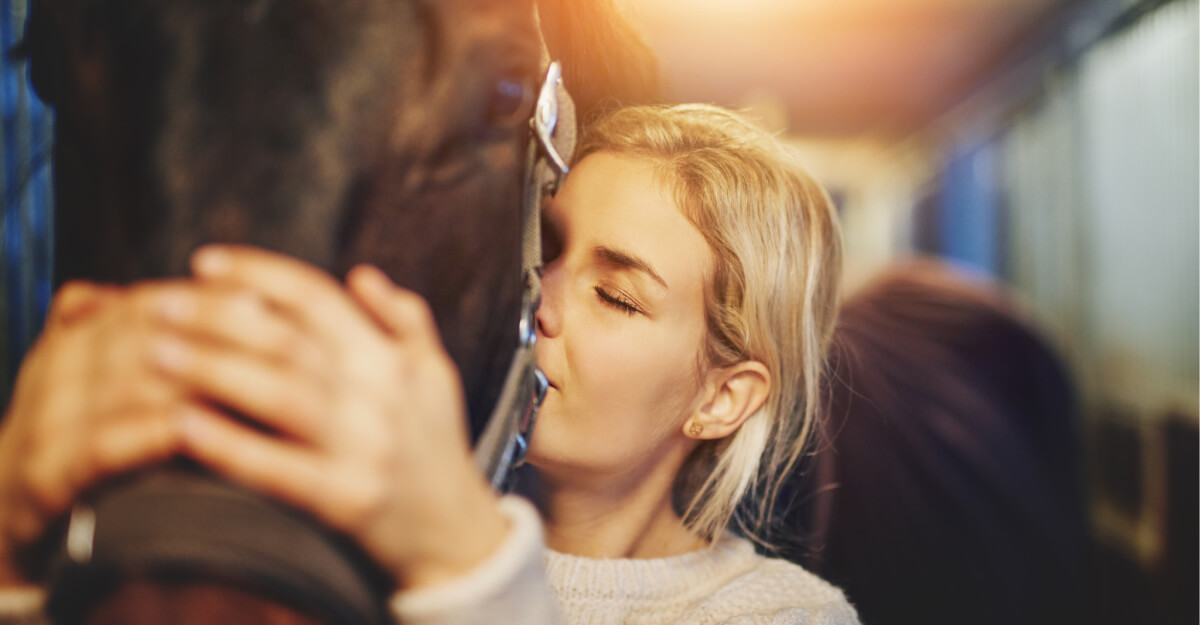
It is best not to buy a horse based on your favorite horse color or breed. Your dream may be unrealistic to fulfill until you are more experienced with horses. And money may become an issue. Instead, it would be best to buy a horse based on its training level, behavior, what it can do, and how its abilities match your skills and riding goals. Discuss with your trainer the cost of a horse that fits your needs. Its color and breed mean little to the perfect horse.
As you become a more experienced rider, you can consider a horse that fits your dreams. Don’t feel bad or guilty when or if you outgrow your horse. Depending on what discipline you use your horse in, it will determine if you will outgrow it. We all outgrow our horses at one time or another. Outgrowing your horse can mean several things. You may be wanting to use your horse for another discipline, or you may have outgrown him and want a more challenging ride. If you are a parent, your child might outgrow a pony or small horse in size or abilities. A horse might get hurt and can no longer perform like he used to. Whether you keep your first horse or sell him to another beginner rider, you should always keep his best interest at heart.
3 Don’t get too much horse
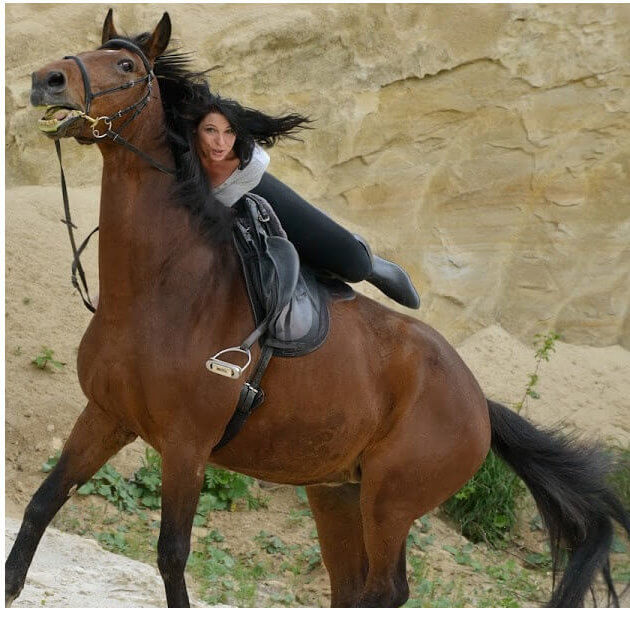
If you are a beginner, don’t buy a baby horse. A horse can be “too much” horse for any rider. That means they are too high-spirited, do not respect the person leading them, doesn’t always listen to the rider, to name a few. All characteristics are not a good scenario for a beginner rider.
4. Consider your physical size
Consider your size as compared to the horse’s height and build. You should be 15-20% of a horse’s weight. For example, if you weigh 180#, at 15%, your horse should be at least 1200#. A beginner rider does not have the balance a more experienced rider has. In that case, the more weight the horse can handle, the better. An unbalanced rider can throw a horse off of balance, which can cause neck, back, and leg problems for the horse. An unbalanced horse can also be challenging to ride.
5. A beginner should not “train” a horse
A beginner should not buy an untrained horse, especially if not involved with a lesson program. This situation is an accident waiting to happen. Getting bucked off or kicked can have catastrophic results. A beginner or even a novice rider should be riding a well-trained horse that will teach the rider. There is no better teacher than a schoolmaster.
A child rider should not own a baby horse. A child can bond with an older, more stable horse and should not deal with a young inexperienced horse while learning to ride. In addition, safety is a significant concern when children are involved with untrained or young unpredictable horses.
Likewise, a rider who wants to compete immediately should not buy a horse that needs a few years of training before being shown. Showing is a great educational tool and test of riders’ skills. If showing is essential to the rider, don’t waste their time training a horse, it is best to learn and gain experience from a seasoned schoolmaster in the show ring. Young people especially need more positive reinforcement. As they gain experience in the show ring, their successes will become evident in their everyday lives and future.
4 Find transportation
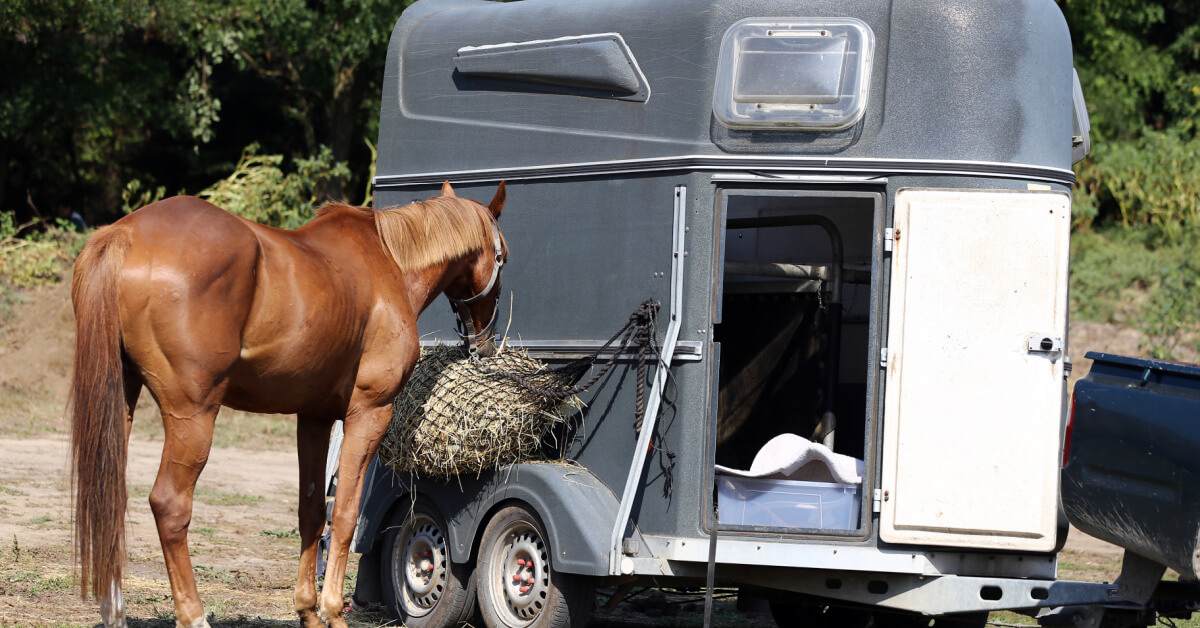
You will need to make arrangements to ship your horse to its new home. Always have transportation waiting for a phone call from you. Another option is your riding stable might have a trailer to help transport the new horse. If they do, ask if it is an extra charge or included in the commission you are paying them.
If you will keep your horse at home or any other personal barn, don’t forget to consider purchasing a trailer for hauling. You might need to ship your horse to a veterinarian for regular health care or emergencies. It is hard to depend on someone else for transportation during an emergency. Emergencies can occur at all hours of the night.
4. Try the horse out
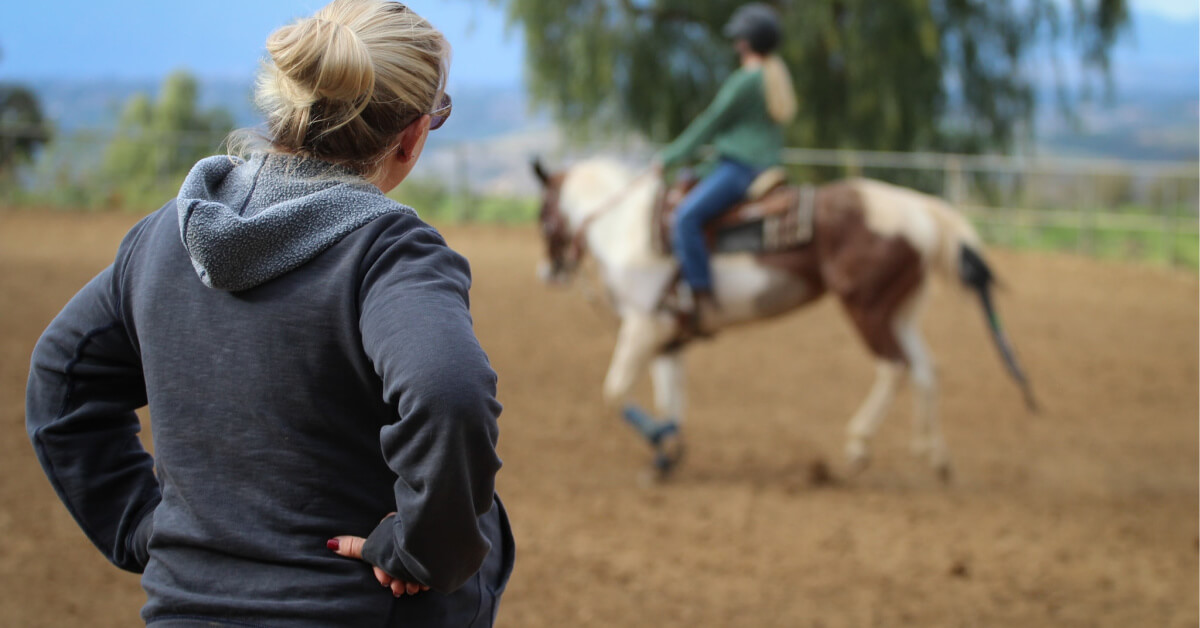
Trying a horse out means getting on and riding it. Also, be sure to have another rider or your trainer get on. You will be able to see how the horse moves and looks. Your trainer will tell how well the horse’s level of training is and determine whether it is suitable for your level. You can compare notes about his way of going. Don’t ever buy a horse you have not ridden.
5. Taking a horse on trial

Some sellers will allow a horse to be taken to your trainer’s barn so you can be with it for a few days. This way, the seller, your trainer, and you will know whether the horse will be a good fit or not. A seller should want to make sure the horse is a good fit. It will depend on the reputation of your trainer if a seller sends a horse for a trial run. You ensure no funny business going on, like the seller giving the horse a sedative. If you do not use a trainer, you most likely will not have the opportunity to take them home for a trial period. You could ask to lease the horse for a couple of weeks or a month to see if he is as good as the owner says it is.
6. Pre-purchase Vet Check

Always have a vet look at the horse before you purchase it. All sellers should realize that a vet will be part of the selling process. Be prepared to hire a vet for your new horse’s precheck and future care. Your vet and their tests will keep the outcome in your best interest. They may find something small which does not affect the overall health or way of going for a horse. But, they also might find a significant flaw that you should not overlook. If something comes up at the vet check, always remember to be prepared to say “no” to the sale. It’s not worth getting all worked up and excited about a horse that does not pass a vet exam. Don’t be afraid to walk away if your vet says you should. Be sure to get a cost on different levels of vet checks.
6. Always have a purchase agreement written

Contracts are a must these days. Handshakes do not always hold weight. You can look at contracts for buying or leasing horses on the internet. Remember to have liability insurance coverage for you and your horse.
7. Stay away from auctions and rescues
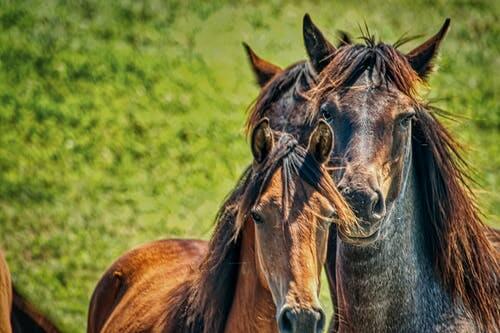
Don’t buy a horse at a horse auction. Unless your trainer is with you and has done all the research needed to determine if it is the right horse for you. Don’t buy a horse that you only see videos or pictures. There are so many ways this could go wrong. Until you become an experienced horse person with training and knowledge, stay away from these places when buying your first horse. There are those willing to take a chance on a horse like these. But it can become costly and maybe even dangerous for the first-time horse buyer.
Questions about this post?
Did the above list help you with buying your new horse?
Let me know if I left something out.
I’d love to hear your experiences with new horse ownership if you have already gone through it.
Would you please comment below?

